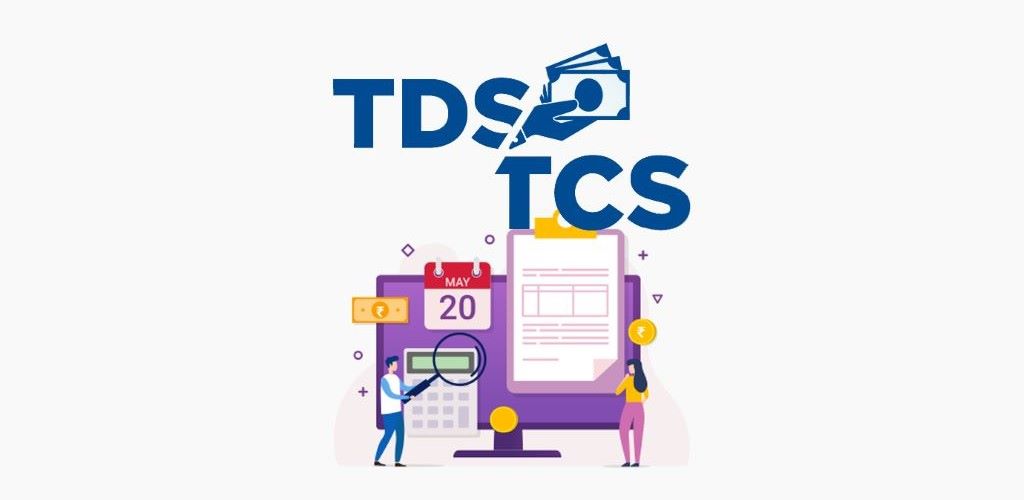The Post Office Monthly Income Scheme Account (MIS) stands out as a superb investment choice, especially for retirees and individuals seeking a consistent stream of funds. This small savings scheme, backed by the Government of India, empowers investors to allocate a fixed amount each month. Following this, interest is accrued on the investment at the prevailing rate and disbursed to depositors monthly.
The Post Office Monthly Income Scheme Account (MIS), along with counterparts like the Post Office Savings Account, Post Office Recurring Deposit, and Post Office Time Deposit, stands out as one of the most lucrative options, offering an impressive interest rate of 7.4% per annum, payable every month. True to its name, the interest in this scheme is distributed every month. Like other post office schemes, this one is duly recognized and endorsed by the Ministry of Finance. It provides a secure and reliable avenue for individuals seeking consistent returns on their investments.
Eligibility criteria to open an MIS account
- The eligibility to open a National Savings Monthly Income Account(MIS) is limited to resident Indians only.
- Non-resident Indians (NRIs) are not eligible to avail the benefits of this particular scheme.
- Any adult, regardless of age, has the option to open a Post office national savings monthly income scheme account.
- Additionally, adults have the flexibility to open an account on behalf of a minor, provided the minor is 10 years or older. The accrued funds can be accessed by the minor once they reach 18 years of age.
- Upon reaching the majority, a minor is required to apply for the conversion of the account into their name to continue managing the investment.
What Distinguishing Features & Benefits Does MIS Offer?
- Lock-in period: When initiating a National Savings Monthly Income Account (MIS) account with a post office, it’s essential to note that any withdrawal of the deposited amount is restricted within the first 5 years of opening the account. This means that the funds deposited in the MIS account are subject to a lock-in period of 5 years, during which premature withdrawals are not permitted. After the completion of this 5-year tenure, investors can access their funds or choose to renew the scheme based on their preferences.
- Capital protection: Rest assured; your funds are secure until maturity when you invest in the National Savings Monthly Income Account (MIS) with the post office. This scheme is backed by the government, providing a guarantee for the safety of your investment. The government support adds an extra layer of security, making the National Savings Monthly Income Account (MIS) a reliable option for those seeking a safe and stable investment avenue.
- Tenure: The lock-in period for the National Savings Monthly Income Account (MIS) is indeed 5 years. During this time, investors are not allowed to withdraw the invested amount. However, once the scheme matures after the completion of the 5 years, you have the flexibility to either withdraw the invested amount or reinvest it, based on your financial goals and preferences.
- Low-risk investment: The account, being a fixed-income scheme, offers a level of security as the invested money is not subject to market risks. Unlike some investment options tied to market fluctuations, the returns from MIS are predetermined and fixed. This characteristic makes it a relatively safe choice for individuals seeking stability and a predictable source of income, particularly during the specified tenure of the scheme.
- Affordable deposit amount: The MIS offers a flexible entry point, allowing you to start with a nominal initial investment of Rs.1,000. Depending on your affordability and financial goals, you have the option to invest in multiples of this amount.
- Guaranteed returns: With the account, you receive a regular income stream in the form of monthly interest payments. While the returns may not outpace inflation, they are relatively higher compared to certain other fixed-income investments such as Fixed Deposits (FD). The monthly interest payments can provide a steady source of income, making it an attractive option for those seeking regular returns without being overly exposed to market volatility.
- Tax-efficiency: MIS accounts are not eligible for tax benefits under Section 80C of the Income Tax Act. Additionally, Tax Deducted at Source (TDS) does not apply to the interest earned from this scheme. While it does not offer tax-saving advantages, the absence of TDS can be advantageous for investors as it allows them to receive the full interest amount without any immediate tax deduction at the source.
- Pay-out: If the pay-out for the account is processed after one month after making the first investment, this timing should be considered by investors. It means that while the scheme offers monthly interest payments, the initial pay-out is not necessarily at the beginning of every month but rather one month after the first investment is made.
- Multiple account ownership: You have the flexibility to open more than one Post Office Monthly Income Scheme Account (MIS) in your name. However, there is a stipulation to be aware of — the total deposit amount across all your accounts combined cannot exceed Rs. 9 lakhs. This limit is in place to ensure that there is a fair and regulated distribution of funds within the scheme.
- Joint account: The Post Office Monthly Income Scheme Account (MIS) also provides the option to open a joint account with 2 or 3 individuals. In such cases, the aggregate sum of the investment in the joint account can go up to Rs.15 lakhs. This joint account option is beneficial for those who wish to pool their resources and invest collectively, allowing for a higher total investment limit compared to an individual account.
- Fund movement: The Post Office Monthly Income Scheme Account (MIS) now offers the flexibility for investors to move their funds to a Recurring Deposit (RD) account. This added feature provides investors with an option to reallocate their funds according to their financial goals or changing circumstances. Shifting funds to an RD account can be a strategic move for those seeking a different savings structure or looking for a regular savings plan.
- Nominee: Investors in the Post Office Monthly Income Scheme Account (MIS) have the option to nominate a beneficiary, typically a family member. This nomination allows the designated beneficiary to claim the benefits and corpus of the investment in the unfortunate event that the investor passes away during the term of the account.
- Ease of money/interest transaction: It’s great to know that the National Savings Monthly Income Account (MIS) offers multiple options for receiving monthly interest. Investors can choose to collect the interest directly from the post office, opt for automatic transfers to their savings account, or explore the possibility of reinvesting the interest in a Systematic Investment Plan (SIP). This flexibility provides investors with choices that align with their preferences and financial goals.
What Interest is Applicable on National Savings Monthly Income Account?
- Interest shall be payable on completion of a month from the date of opening and continue in this manner until maturity.
- If the monthly interest is not claimed by the account holder, it will not earn any additional interest. This underscores the importance of timely collection of the interest to maximize returns.
- In the event of any excess deposit made by the depositor, the excess amount will be refunded. In such cases, only National Savings Monthly Income Account (MIS) will be applicable from the date of opening of the account to the date of the refund.
- You have the flexibility to receive interest from the National Savings Monthly Income Account (MIS). You can opt for an auto-credit facility, where the monthly interest is directly deposited into the savings account at the same post office where your MIS account is maintained. For MIS accounts held at CBS (Core Banking Solutions) Post Offices, you have the convenience of having the monthly interest credited to a savings account at any other CBS Post Office. This feature adds flexibility to manage your funds efficiently.
- The interest earned is subject to taxation and is considered taxable income in the hands of the depositor. This means that the depositor is obligated to report and pay taxes on the interest income generated from the National Savings Monthly Income Account (MIS). It’s important for investors to be aware of the tax implications and include the interest earned from such schemes in their income tax filings.
Know the Process of Pre-Mature Closure of Account
Pre-mature closure of account: –
- It’s specified that no deposit from the National Savings Monthly Income Account shall be withdrawn before the expiry of 1 year from the date of deposit. This indicates a mandatory lock-in period of 1 year, during which investors cannot make any withdrawals.
- In the event of closing the MIS account after 1 year but before 3 years from the date of account opening, a deduction equal to 2% from the principal will be applied. The remaining amount after this deduction will be paid to the account holder. This deduction is a measure to account for premature closure and is an important consideration for investors who may need to access their funds before the completion of the 3 years.
- In the scenario where the MIS account is closed after 3 years but before 5 years from the date of account opening, a deduction equal to 1% from the principal will be applied. The remaining amount after this 1% deduction will then be paid to the account holder. This provision outlines the terms and conditions associated with premature closure during the specified period.
- To prematurely close an MIS account, the account holder needs to submit a prescribed application form along with the passbook at the concerned Post Office. This formal process is in place to facilitate and document the closure request. Account holders should ensure that they follow the specified procedure outlined by the post office to initiate the premature closure.
What is the Maturity Process Under the MIS account?
- The MIS account may be closed on the expiry of 5 years from the date of opening. To initiate the closure, the account holder should submit the prescribed application form along with the passbook at the concerned Post Office.
- In the unfortunate event of the account holder’s demise before the maturity of the MIS, the account may be closed, and the amount will be refunded to the nominee or legal heirs. The interest will be paid up to the preceding month in which the refund is made.
How to open a MIS Account?
Initiating an MIS account is a simpler process than you might imagine. There’s no need to envision enduring lengthy queues or extensive paperwork. Explore the hassle-free step-by-step procedure below instead.
If you don’t already have one, start by opening a post office savings account.
- Obtain an application form from your local post office.
- Submit the duly filled form along with photocopies of your ID and residential proofs, as well as two passport-size photos at the Post Office. Remember to bring the originals for verification purposes.
- Obtain the signatures of your witness or nominee(s) on the application form.
- Complete the initial deposit by providing cash or a cheque. If using a post-dated cheque, note that the date on the cheque will serve as the account opening date.
- After the processing is completed, the Post Office executive will furnish you with the details of your newly opened account.
Frequently Asked Questions
Here is the list of the frequently asked questions related to the MIS account.
Each joint account holder will own an equal portion of each other’s shares.
If the deposit amount is not withdrawn at account maturity, it will remain in the account and receive basic interest for two years, following the MIS account.
Indeed. Seniors can deposit their life savings into the account and earn interest for their monthly costs, making this a beneficial arrangement for them.
If you move to a new city, it’s simple and cost-free to transfer your MIS account to the Post Office in your new location.
For an individual account, the maximum deposit limit under POMIS is 9 lakhs, while for a joint account, it is 15 lakhs.
If an MIS investor passes away, nominees may apply for a death claim settlement right away, even if the five-year lock-in period hasn’t ended. Reimbursement of the investment amount plus interest accrued up until the time of death can be obtained by filing a death claim application.








